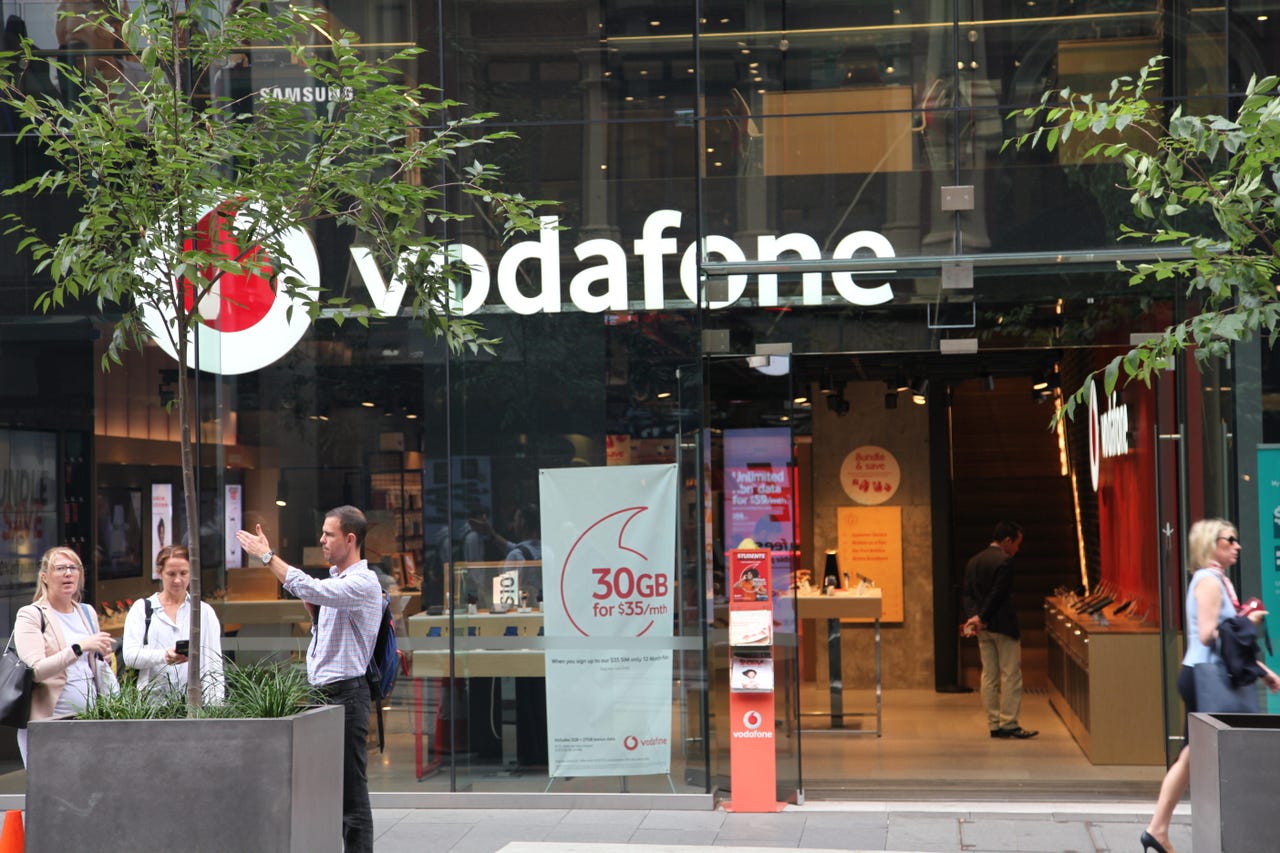ACCC opposes TPG and Vodafone Australia merger

The Australian Competition and Consumer Commission (ACCC) has opposed the merger between TPG and Vodafone Australia.
The decision initially appeared in a short statement on the consumer watchdog's site.
"This information was inadvertently published online on our mergers register briefly this afternoon," the Commission said.
The ACCC later on Wednesday updated its announcement, saying it believed the merger would substantially lessen competition, and that TPG had the commercial incentive to roll out a mobile network.
"TPG is the best prospect Australia has for a new mobile network operator to enter the market, and this is likely the last chance we have for stronger competition in the supply of mobile services," ACCC chair Rod Sims said.
"Wherever possible, market structures should be settled by the competitive process, not by a merger which results in a market structure that would be subject to little challenge in the future. This is particularly the case in concentrated sectors, such as mobile services in Australia."
In explaining its decision, the ACCC pointed to Australia's concentrated mobile services market, with the three network operators, Telstra, Optus, and Vodafone, boasting over 87% share. Similarly, it said the fixed broadband market is concentrated, with Telstra, TPG, and Optus having approximately 85% share.
Sims noted that TPG has the fibre assets, transmission network, spectrum, and customer base to move into mobile, while Vodafone had moved into fixed broadband.
"TPG is also facing reducing margins in fixed home broadband due to the NBN rollout. Further, there is the growing take-up of mobile broadband services in place of fixed home broadband services which is expected to increase especially after the rollout of 5G technology," Sims added.
"After thorough examination, we have concluded that, if this proposed merger does not proceed, there is a real chance TPG will roll out a mobile network."
However in January, TPG made the decision to abandon its mobile network build in Australia, and cop a AU$230 million accounting hit as a result.
TPG said the decision was made due to the Australian government's ban on Huawei 5G equipment. The telco said it had purchased equipment for 1,500 sites, as well as 900 fully or partially completed small cell sites. The company has already racked up AU$100 million in costs, with a further AU$30 million to come.
"It is extremely disappointing that the clear strategy the company had to become a mobile network operator at the forefront of 5G has been undone by factors outside of TPG's control," Executive Chairman David Teoh said at the time.
"Over the past two years a huge amount of time and resource [sic] has been invested in creating and delivering on a strategy that would have positioned TPG very favourably to exploit the opportunities that the advent of 5G will present."
On the accounting side, the largest individual cost will be the reduction in value of its unused spectrum licences by AU$92 million, with the telco saying this was due to licences having a finite duration.
"Having ceased its mobile network rollout, the group now has no business plan or strategy for using its spectrum licences on a standalone basis and, accordingly, the carrying value of these licences is required to be reassessed," the company said.
The ACCC's decision on the merger had previously been delayed due to a lack of information from the parties.
In December, the ACCC said in a statement of issues that it had concerns over the proposed merger.
"Our preliminary view is that TPG is currently on track to become the fourth mobile network operator in Australia, and as such it's likely to be an aggressive competitor," Sims said at the time.
"We therefore have preliminary concerns that removing TPG as a new independent competitor with its own network, in what is a concentrated market for mobile services, would be likely to result in a substantial lessening of competition.
"If TPG remains separate from Vodafone, it appears likely to need to continue to adopt an aggressive pricing strategy, offering cheap mobile plans with large data allowances. Our preliminary view is the merged TPG-Vodafone would not have the incentive to operate in the same way."
The ACCC said at the time it would also look into whether removing Vodafone as a fixed broadband competitor would impact competition.
TPG and Vodafone Australia announced in August the deal that proposed to create a new entity worth AU$15 billion would use the TPG moniker.
Updated 5.05 pm AEST 8 May 2019: Added further comments from the ACCC.
Related Coverage
TPG is still king of NBN speed report
TPG still delivers on its download speed promises the most often, while Exetel won on upload speeds, Telstra on latency, and Optus on the highest number of daily outages, according to the fifth ACCC report.
ACMA warns TPG, Foxtel, Aussie Broadband on priority assistance
TPG, Aussie Broadband, MyRepublic, Foxtel, Activ8me, Exetel, Dodo, Skymesh, Southern Phone, Spintel, and V4 Telecom have been formally warned to provide accurate information on priority assistance services.
TPG quarterly profit drops 76 percent after Huawei ban
While the mobile network abandonment brought down TPG's Q1 results, the telco also made less revenue thanks to the broadband market erosion caused by the NBN rollout.
Huawei ban sees TPG end rollout of Australian mobile network
Australian telco says the lack of a clear upgrade path to 5G will see it end its network rollout.
TPG to cop near AU$230m accounting hit due to mobile network abandonment
Telco to write-down its mobile network and reduce value of spectrum licences pending the merger with Vodafone.
